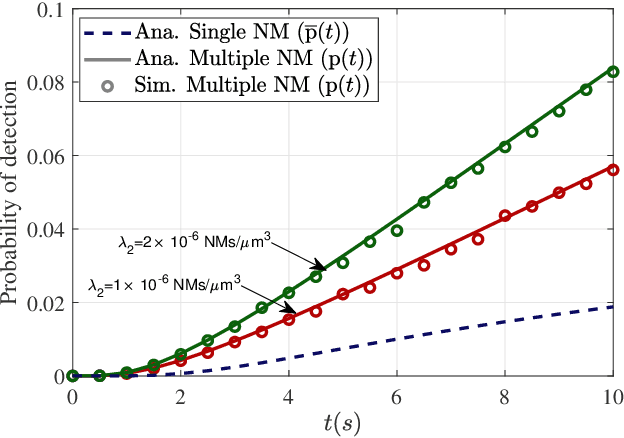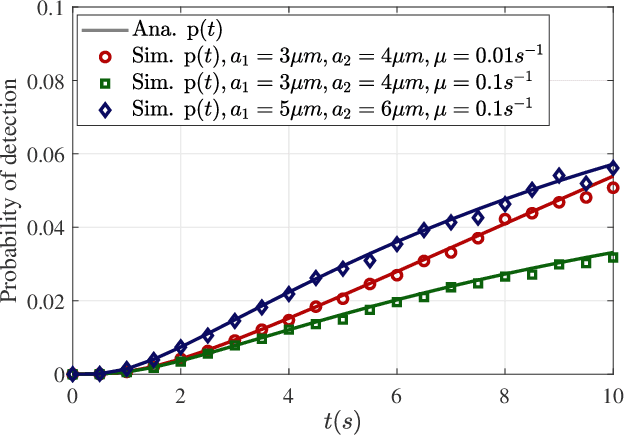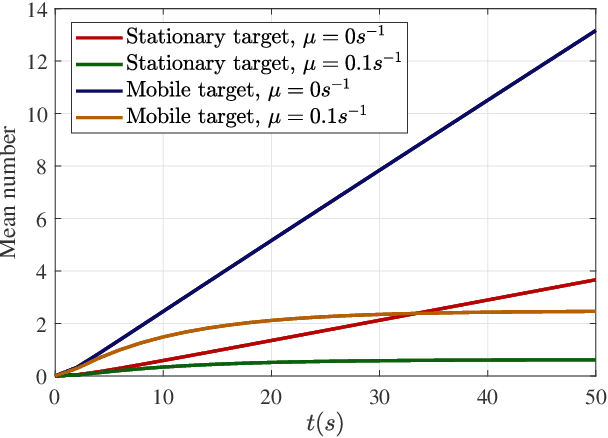On the Target Detection Performance of a Molecular Communication Network with Multiple Mobile Nanomachines
Paper and Code
Jan 09, 2024



A network of nanomachines (NMs) can be used to build a target detection system for a variety of promising applications. They have the potential to detect toxic chemicals, infectious bacteria, and biomarkers of dangerous diseases such as cancer within the human body. Many diseases and health disorders can be detected early and efficiently treated in the future by utilizing these systems. To fully grasp the potential of these systems, mathematical analysis is required. This paper describes an analytical framework for modeling and analyzing the performance of target detection systems composed of multiple mobile nanomachines of varying sizes with passive/absorbing boundaries. We consider both direct contact detection, in which NMs must physically contact the target to detect it, and indirect sensing, in which NMs must detect the marker molecules emitted by the target. The detection performance of such systems is calculated for degradable and non-degradable targets, as well as mobile and stationary targets. The derived expressions provide various insights, such as the effect of NM density and target degradation on detection probability.
 Add to Chrome
Add to Chrome Add to Firefox
Add to Firefox Add to Edge
Add to Edge